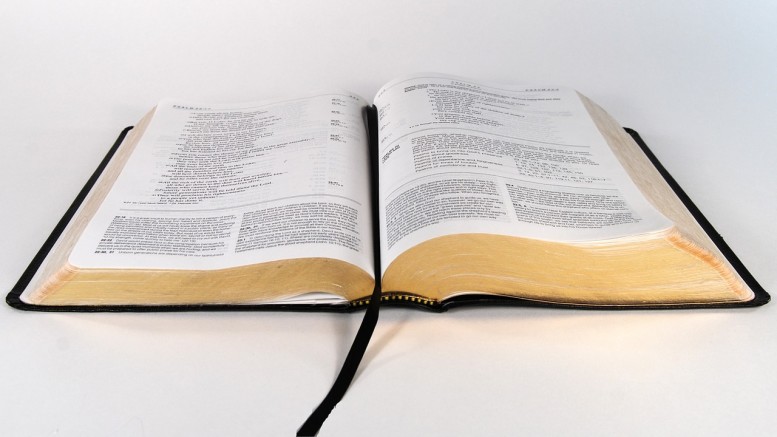Copyright (c) 2019 by Bob Siegel
“I have been taught that demons are fallen angels who followed after Satan when he fell into sin and rebelled against God. I have also heard that demons can possess human beings and literally live inside of them. While I understand that demons wish to deceive us and keep people from giving their lives to Jesus, the idea of these beings possessing people seems very far fetched. In any event, wouldn’t angels have bodies of their own?”
You are close in your understanding of fallen angels. They do exist and they have rebelled against God. As for demons, they are descendants of fallen angels but not actually angels themselves.
Before continuing, let me say that while the notion of demoniac possession might come across as fantasy, this phenomenon has been documented by many. I myself can also witness personally. I have participated in exorcisms and cast demons out of people. I don’t say this lightly. There are people far more experienced in these special deliverance ministries than me, and I would never venture forth to cast out a demon by myself. I always seek help and would advize anyone else to do the same.
Back to the origin of demons. During the days of Noah, a group of rebellious angels, fascinated by the idea of human sexuality, but forbidden sexual relations by God, took on human form. As male humans, they had sexual relations with mortal women. The children of these unions were called Nephilim (Genesis 6:1-4) Jude 7). These new hybrid beings (part angel, part human) were evil but influential and looked up to as heroes. Several key events immediately followed. God sent the flood, wiping out the Nephilim and all other human beings with the exception of Noah and his family. The parent angels who had committed this sin were immediately locked away in a spiritual prison called Tartarus, apparently part of another spiritual prison, Hades (I Peter 3:19-20, 2 Peter 2:4-5).
The disembodied spirits of these dead Nephilim are demons (Enoch 15). They are fascinated with the notion of inhabiting human bodies because they once had bodies themselves! Apart from a human body, they exist in some unseen dimension. They have access to our thoughts and can be deceptive even from the outside. They apparently have passage to a back door of the human mind (Acts 5:3). Their deception and influence is defeated when we give our lives to Christ and focus our minds on the Holy Spirit living inside of us (Romans 8).
Obviously, this quick answer raises even greater questions:
“The very notion of angels mating with human beings sounds like Greek mythology. Don’t we have stories of the ancient god Zeus coming down and having sex with women, giving birth to hybrid god/humans such as Hercules?”
Yes, it does sound like mythology although it would be more correct to say Greek mythology sounds imitative of the Bible. The early events and many of the early corresponding books of the Bible far outdate Greek mythology. Homer’s works, which more or less became the “Greek Bible,” were not penned until the late eighth and early seventh centuries before Christ. And so, we must ask who borrowed from whom. Inasmuch as demonic spirits have been verified, (see above) and inasmuch as there is so much other evidence historically and archaeologically for Biblical accuracy, there is really no valid reason not to accept this narrative as factual.
“I noticed that one of your references was from the Book of Enoch. As for your Scripture verses, some of them seem confusing and the information they provide is very limited.”
My first response is an important disclaimer: I am NOT saying Enoch should be included in the Biblical canon although there are some churches such as the Church of Ethiopia who do include it. I am saying, that this book was at least taken very seriously by the Jews of Jesus’ day and the early Apostolic Fathers. It was also taken seriously by Peter and Jude, the brother of Jesus, both New Testament writers. Jude literally quotes a passage from Enoch and states Enoch as the source. You are correct in pointing out that the references I shared from Genesis and both books of Peter make only limited sense. The truth is, we cannot completely understand them apart from the Book of Enoch. Part of Bible interpretation (objective interpretation, not flighty touchy-feely ‘believe what we want’ interpretation) is to realize that what Scripture meant to its original audience is what it must mean to us. This is done by studying an abundance of extra literature that comes from ancient Israel and other places.
In addition to Enoch, we can also find this teaching about demons corroborated by ancient historians such as Josephus and Philo, along with the books of Jubilees, Jaspher, and Testament of the 12 Patriarchs. There is also ancient rabbinical commentary in the Midrash.
Apostolic Fathers who expressed this belief include Justin Martyr, Clement, Tertullian and Augustine.
In any event, whatever people agree or disagree about regarding the origins of our spiritual enemies, the battle lines are clearly drawn for Christians:
“For our struggle is not against flesh and blood, but against the rulers, against the authorities, against the powers of this dark world and against the spiritual forces of evil in the heavenly realms ” (Ephesians 6:12).
Share this on